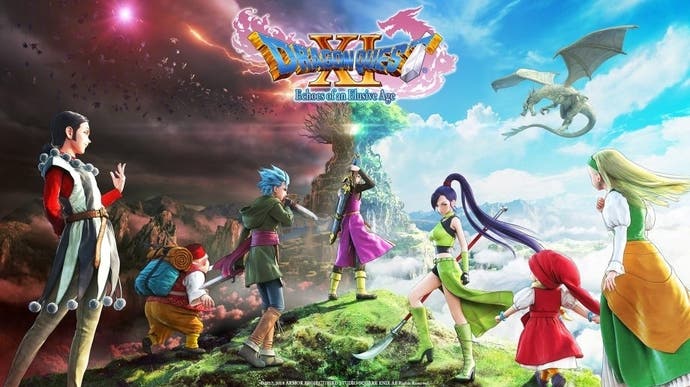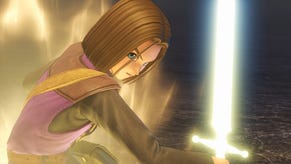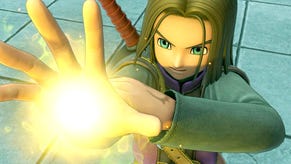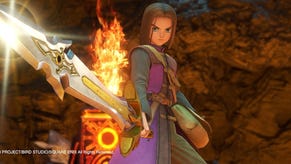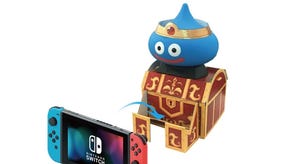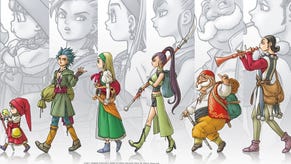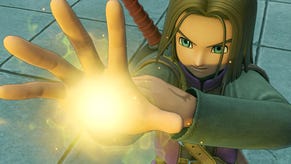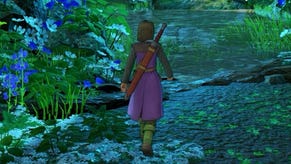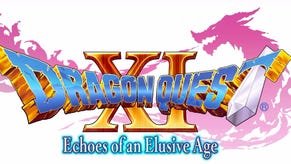Dragon Quest 11 S: Echoes of an Elusive Age review - an epic RPG revisited and redefined
The luminary brothers.
I'm not going to admit I was wrong, but... A year ago Dragon Quest 11 came out for PlayStation 4 and, while I certainly enjoyed it, I wasn't as keen on it as most. This was a staunchly traditional outing that didn't seem to offer too much beyond splendour (though it was so splendrous that it's easily the most lavish RPG I've ever played). Now, playing through Dragon Quest 11 a second time on Switch, I've adjusted my opinion a little. Why exactly is that?
Maybe a part of it is plain old Nintendo fanboyism, and seeing Dragon Quest back where it belongs on Nintendo hardware. But I like to think I'm a tiny bit more professional than that, and certainly a lot has changed for this new edition, embellishing the original in all the right places and adding a fair bit more besides. It's not as if the fundamentals of Dragon Quest 11 have been altered - far from it - and rather that they've been buffed and polished to the point where it's easier to appreciate what they're really getting at.
And this Dragon Quest, really, is all about tradition. As has always been so with Enix' series, but 11's very essence seems to be to respect the ways of this 33-year-old franchise. Set in the vibrant whimsy of Erdrea, Dragon Quest 11 sees your mute protagonist slowly awaken to their destiny to save the world. Its ripe old stuff made fresh by Dragon Quest's typical flair for character and dialogue (here voiced in English and, for the first time, Japanese), and enlivened by references to the series' past. There's a late nod to one game in particular, while this new Switch edition liberally scatters a fair few more around.
The opportunity to play set pieces from past Dragon Quest games is an extension of the 2D mode that's also included in this Switch edition, a mode lifted from the 3DS version that itself never got localised for the west. Step into a church in Dragon Quest 11 S and you can opt to switch modes (although it's worth pointing out it's not seamless, as you're pushed back to the start of the chapter), and yes it's possible to play through the adventure entirely in 2D. What I love about its inclusion here is how it shows that beyond all that glorious window dressing lie the foundations of a staunchly traditional RPG.
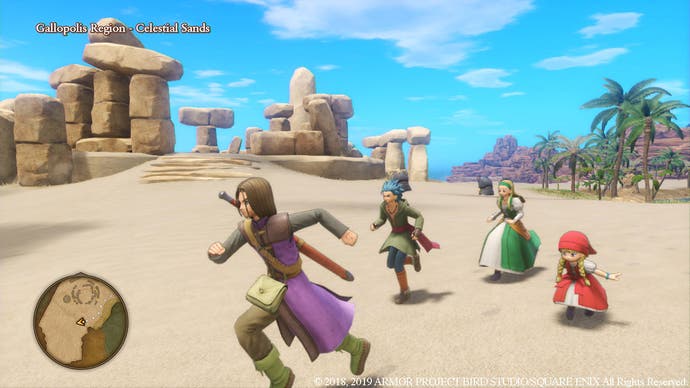
So yes, battles are turn-based. There's the option to move freely in combat, but it's movement that doesn't impact combat in any way so feels entirely redundant. There's a skill board, crafting via a forge that can now be used outside of campsites, and pep powers that let you chain attacks between your party members. And it's all so, so gentle, with not a blunt edge to be found anywhere. Is it frustratingly shallow, or is it pleasantly frictionless? That's all a matter of personal perspective, really.
Progress in Dragon's Quest is intended to be smooth, as befits its whole kid's book vibe. Like any old tale retold, it's about the details of the retelling - and this Dragon Quest excels here. Akira Toriyama's artwork has never looked better (and while resolution understandably takes a hit on the Switch, it still looks magnificent when playing either handheld or docked), the soundtrack never richer - and this time around there's an orchestrated score and the option, should you be slightly mad, to go back to the synthesised version of the PS4 original.
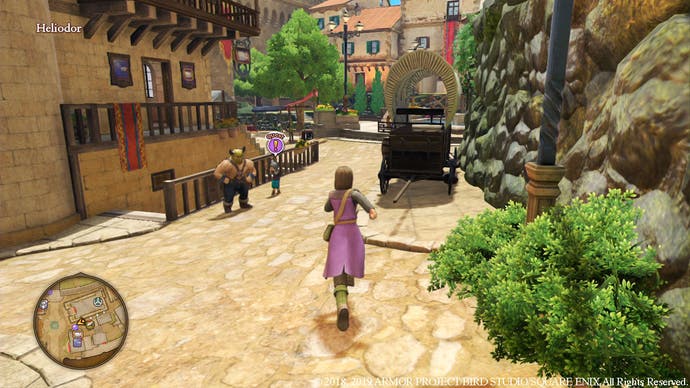
It's all lavish in the same way Dragon Quest 8 was in its day, although my one big problem with Dragon Quest 11's vanilla edition was how its progress was as glacial as the famously slow Dragon Quest 7. Maybe that's something that delights you, or maybe you're wondering, like me, why Dragon Quest 11 takes as long to get to its opening titles as Stanley Kubrick took to explore faith, intelligence and the question of extra-terrestrial life in 2001: A Space Odyssey. By that point in Dragon Quest 11, you've just about answered the question of where the jump button is.
The Switch version does have its own answer to all that, of sorts, with a new option to speed up battles even further. It certainly helps with progression, takes some of the pain out of grinding, and makes Dragon Quest 11's long journey that bit more palatable. Is this the best Dragon Quest? Some people believe so, and I can understand why - it's where the character, charm and colour that make this series so beloved are at their most vivid. Personally I'm not so sure, and even after the improvements made for this edition I wish Dragon Quest 11 could find a little more space for its players, though there's no denying the eloquence of its craft, or the vastness of its scope. In terms of scale and spectacle, this is as grand an adventure you'll find on the Nintendo Switch this side of Breath of the Wild.
